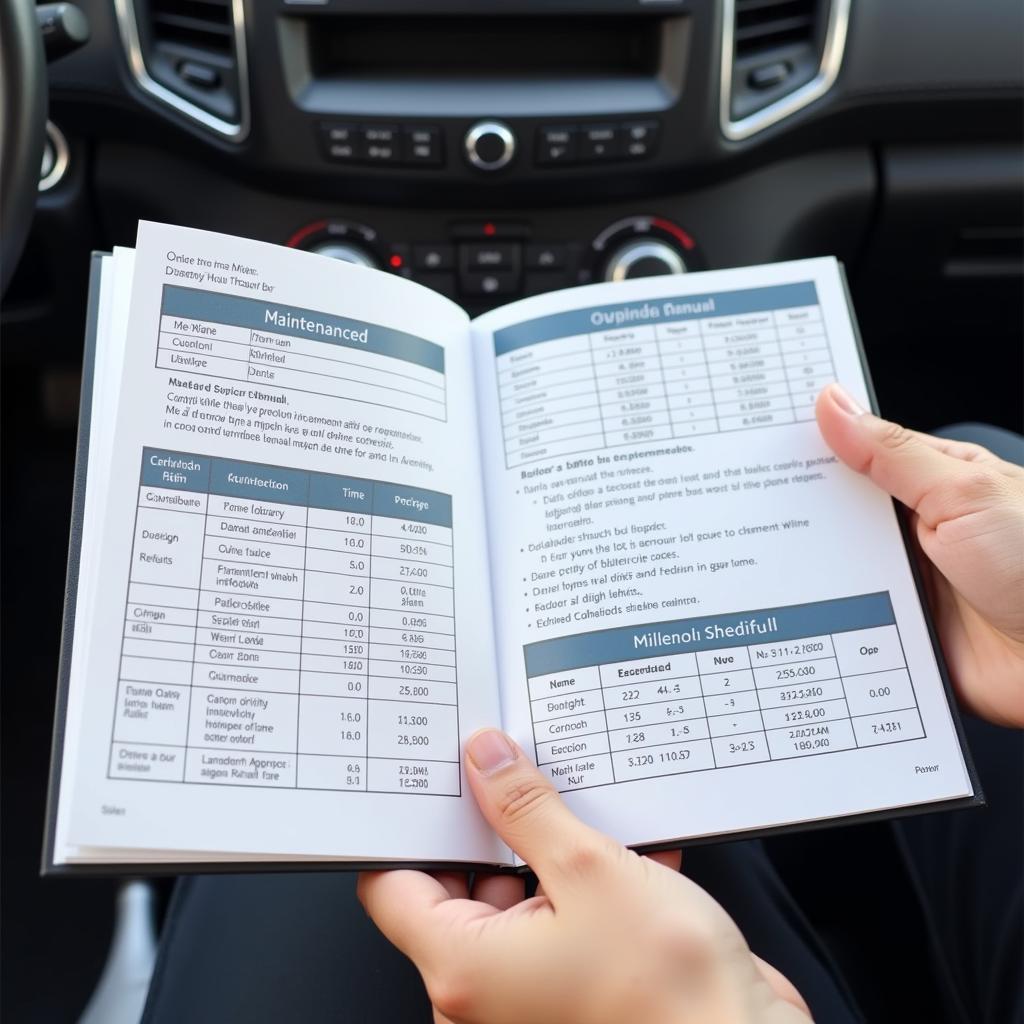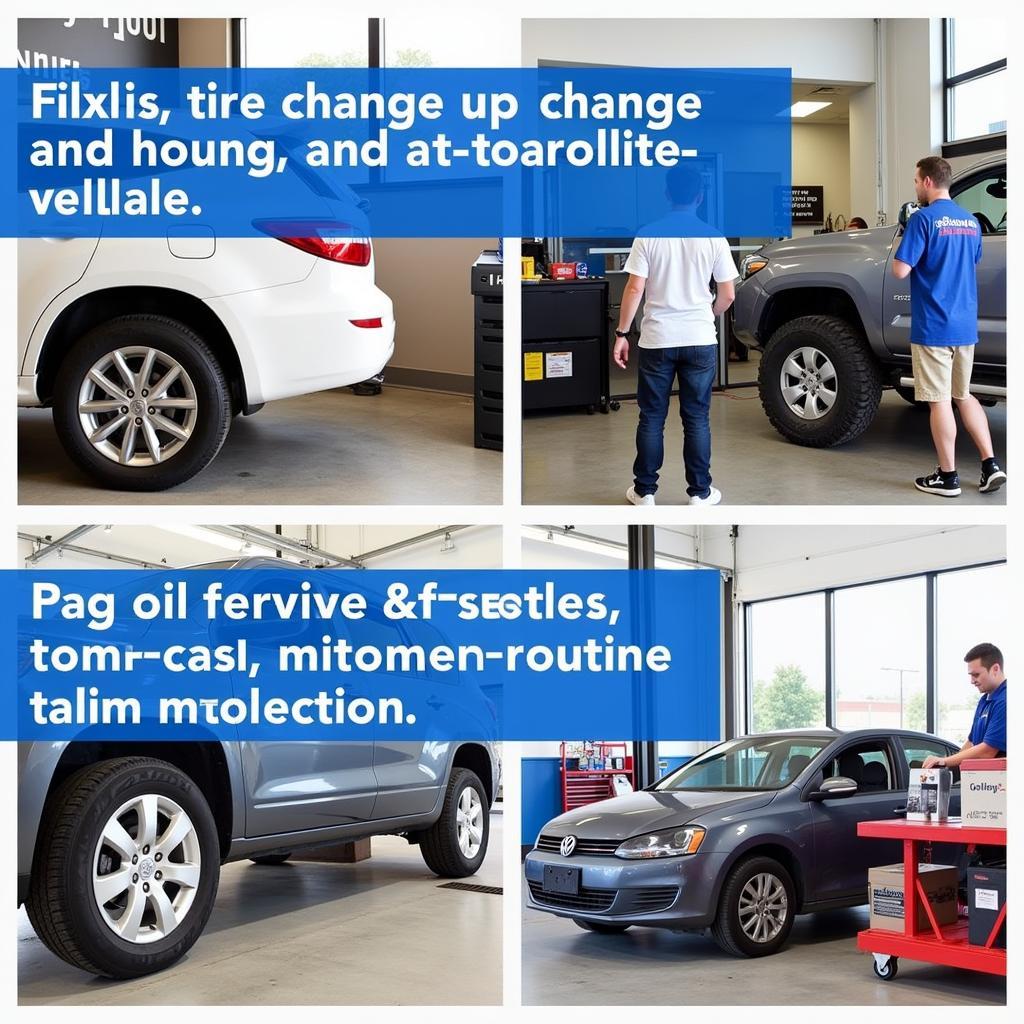How Often Do I Get My Car Serviced?
Knowing how often to service your car is crucial for maintaining its performance, reliability, and longevity. It can also save you money in the long run by preventing costly repairs down the line. While the classic “every 3,000 miles” advice is outdated, understanding your car’s specific needs is essential. This comprehensive guide will delve into the various factors influencing car service intervals, helping you determine the optimal schedule for your vehicle.
Getting your car serviced regularly is like giving it a health check-up. It ensures all components are working as they should, identifies potential issues early, and keeps your car running smoothly. Many factors play a role in determining how often this should happen, ranging from your driving habits and the vehicle’s age to the manufacturer’s recommendations and the specific conditions you drive in. Want to learn more about servicing your leased vehicle? Check out where can i get my lease car serviced.
Modern vehicles are equipped with advanced technology and sophisticated engineering, allowing for longer service intervals than older models. However, neglecting regular maintenance can lead to decreased fuel efficiency, compromised safety, and ultimately, a shorter lifespan for your car. Understanding the different types of services, such as oil changes, tire rotations, and brake inspections, is essential for making informed decisions about your car’s maintenance.
Decoding Your Car’s Service Schedule
Your car’s owner’s manual is the ultimate guide to understanding its specific service needs. It outlines the recommended maintenance schedule based on mileage or time intervals, whichever comes first. This schedule typically includes details on oil changes, filter replacements, fluid top-offs, and inspections of various components. Adhering to this schedule is crucial, especially for maintaining your car’s warranty. You might be surprised by what car services does Walmart offer, so it’s worth investigating different service providers.
Understanding Service Intervals: Time vs. Mileage
While mileage is a significant factor, time also plays a crucial role. Even if you don’t drive frequently, certain fluids and components degrade over time. For instance, engine oil can oxidize and lose its effectiveness, even if the car hasn’t accumulated many miles. Therefore, it’s essential to follow the time-based intervals specified in your owner’s manual, even if you haven’t reached the mileage threshold. If you’re thinking about selling your car, you can learn more about can you sell a car without service history.
 Checking Car Service Schedule
Checking Car Service Schedule
Factors Influencing Service Frequency
Several factors beyond the manufacturer’s recommendations can influence how often you should get your car serviced.
Driving Conditions
Driving in extreme conditions, such as stop-and-go traffic, dusty environments, or extreme temperatures, can put additional stress on your vehicle’s components. In such cases, more frequent servicing might be necessary. If you’re unsure about the ideal service frequency for your driving conditions, consult a qualified mechanic.
Driving Style
Aggressive driving habits, such as rapid acceleration and hard braking, can accelerate wear and tear on your car. If you tend to drive aggressively, you might need to service your car more frequently than someone with a gentler driving style.
Vehicle Age
Older vehicles often require more frequent servicing due to the natural wear and tear of components over time. As parts age, they become more prone to failure, necessitating more regular inspections and replacements. Learning how to service cars yourself can be a valuable skill.
“Regular maintenance is not just about keeping your car running; it’s about ensuring your safety and peace of mind,” says renowned automotive expert, Robert Johnson, ASE Certified Master Technician. “A well-maintained car is a safe car.”
Types of Car Services
Understanding the different types of car services can help you tailor a maintenance schedule that suits your specific needs.
- Oil Changes: Regular oil changes are vital for lubricating the engine and preventing excessive wear.
- Tire Rotations: Rotating your tires ensures even wear and tear, extending their lifespan.
- Brake Inspections: Regular brake inspections are crucial for safety, as worn brakes can significantly reduce stopping power.
- Fluid Top-offs: Maintaining proper fluid levels, such as coolant, brake fluid, and power steering fluid, is essential for optimal performance. You can find information on how often do i have to get my car serviced for these tasks in your owner’s manual.
Conclusion
Knowing How Often Do I Get My Car Serviced is crucial for preserving your car’s performance and longevity. By following the manufacturer’s recommendations, considering your driving habits and conditions, and understanding the different types of services available, you can create a personalized maintenance schedule that keeps your car running smoothly for years to come.
FAQ
- Q: How often should I change my car’s oil? A: Consult your owner’s manual for the recommended oil change interval.
- Q: What are the signs that my car needs servicing? A: Unusual noises, vibrations, warning lights, or changes in performance can indicate the need for servicing.
- Q: Can I service my car myself? A: While some basic maintenance tasks can be performed at home, it’s generally recommended to take your car to a qualified mechanic for more complex services.
- Q: What is the difference between a major and minor service? A: A major service is a more comprehensive inspection and maintenance procedure than a minor service.
- Q: How can I find a reputable car service center? A: Ask for recommendations from friends and family or check online reviews.
Need help? Contact us via WhatsApp: +1(641)206-8880, Email: [email protected]. We have a 24/7 customer service team.

